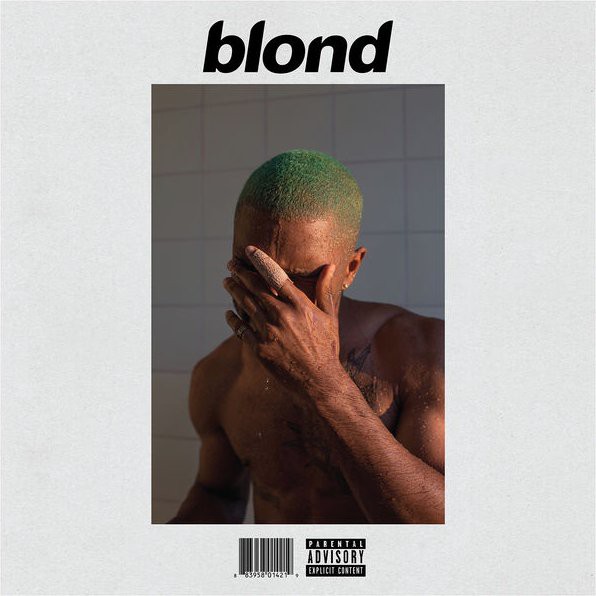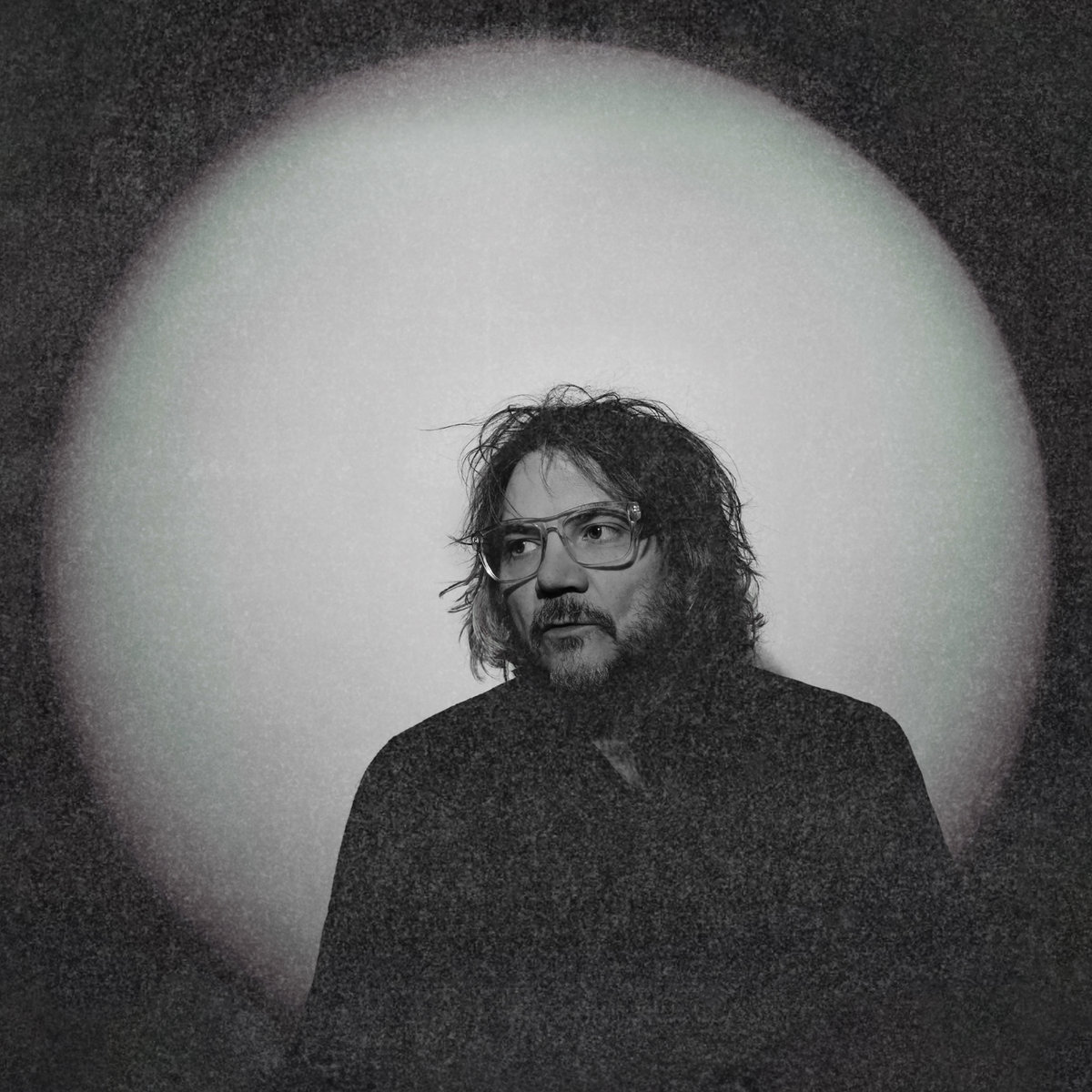Back when he made Channel Orange, Frank Ocean had a secret weapon, and that secret weapon was Christopher Breaux. The version of Ocean who made Channel Orange wasn't too far removed from his government-name self, the one who'd put in time in the trenches, writing pop songs for hire for clients like Justin Bieber and Brandy. With that album, Ocean was making a type of soul music that was sun-blind and decentered, but he still had a mechanic's understanding of how pop music worked, of how you're supposed to put a song together. He could draw on that gift at his leisure. And tracks like "Thinkin Bout You" and "Lost" were so immediate, in part, because they were so structured. More expansive songs like "Pyramids" were too loose and shaggy for pop-song structure, but there was still precision in their architecture. Ocean knew how to engineer an exciting moment like that John Mayer guitar solo. The big difference, I think, between Ocean and someone like Miguel is that Miguel is a recording-industry professional who, when the moment calls for it, can also be an artist. Ocean, by contrast, is an artist who can be a recording-industry professional when he feels like being one. He doesn't feel like being one anymore.
One of the most immediately quotable lines from Blonde, Ocean's new album, comes on "Futura Free," its last song: "I ain't on your schedule. I ain't on no schedule. I ain't had me a job since 2009." That, of course, is a comment on all the deafening noise surrounding Blonde for months, if not years, before it finally came out. The release of Blonde, was, of course, a brutal quagmire of deadlines hinted at and ignored, of leaked release plans that ultimately went nowhere. The album itself was so elusive that I almost can't believe it's here now; it feels like it can be taken away at any moment. So Ocean feels like he needs to remind us that we're lucky to have his music in our lives at all, that he isn't going to rush anything when he doesn't want to, that we're going to have to receive this music with the patience that the music itself demands. But I also feel like that one line shows Ocean's antipathy to the rigors of pop music -- rigors that he studiously ignores throughout Blonde. These songs, for the most part, have no shape or structure to them. They drift along impressionistically, expanding and contracting according to their own internal rhythms and chemistries. The Ocean of Blonde isn't treating this music as a job. He's treating it as something else.
In the week before Channel Orange, Ocean wrote movingly on his Tumblr about falling in love with a man. Since that moment, the world has held Ocean up as an avatar of something -- of queer artistry, of an increasingly enlightened society learning how to perceive sexuality, of new forms of R&B. Ocean isn't interested in any of that, and Blonde, in its own delicately considered ways, resists and subverts any narratives as simple as that. Other artists on Ocean's level have felt compelled to comment, through music, on the ways that society has grown ever more turbulent in the four years since Channel Orange. On Blonde, Ocean sometimes looks outside the prism of his own experience, at bigger things, but he only does so glancingly. "RIP Trayvon, that nigga looked just like me," he movingly offers on first single "Nikes," but only after eulogizing A$AP Yams and Pimp C, whose deaths exist outside politics.
But while the two albums don't address grander societal themes the same way, Blonde reminds me of Kendrick Lamar's To Pimp A Butterfly in some key ways. Both albums radiate anxiety. Both are deeply personal works from artists who seem to be searching for ways to be themselves after being elevated to the status of icons. Both abandon ideas of musical form and structure, instead floating off into new and different directions. And both of them get away with it, largely because both of them come from masters of their chosen forms. Very few artists could get away with making an album this hazy and formless. But Ocean is a towering figure. Simply the warmth of his voice -- loose and conversational but also effortlessly virtuosic, capable of flying off into a heavenly falsetto whenever the mood strikes him -- makes everything he does a must-hear. For long passages on Blonde, he disguises that voice with effects (much the same way Kendrick Lamar does, as a matter of fact). And every time the untreated version of that voice returns, it's like the clouds are parting.
The list of musical collaborators on Blonde is vast and dizzying, and I honestly can't remember the last time I saw a cast of characters that impressive contributing to a single album. Since Ocean hasn't yet specified who did what, that's going to be a matter of conjecture for a long time -- what, for instance, did Brian Eno have to do with this thing? Or Rostam Batmanglij? But this is clearly all one person's singular vision, and many of the most affecting moments are the ones where it's just Ocean singing, with either an organ or a guitar underneath him. He could've done those songs himself. Maybe he did. He's not telling us, at least not yet.
By that same token, he's keeping his lyrics close, never bothering to explain everything that's going on in his life. He sketches things out loosely, giving us images of drugs and sex and heartbreak. If Blonde is about anything, it seems to revolve around a feeling of lostness, of being so caught up in the slipstream of cultural overstimulation that you lose all track of yourself. Even the interludes play into that anxiety: Ocean's mom warning his college self about the pot that could make him "sluggish, lazy, stupid, and unconcerned," or the French dance producer SebastiAn muttering a story about a relationship that disintegrated over a dispute about how Facebook-official it should be. And maybe the form of the album plays into that as well. Most of these songs don't have so much as a chorus, and Ocean's voice just drifts over them, unmoored. There's a lot of drug talk, and it seems to be all wrapped up with heartbreak, as if one is a way to numb or nullify the other: "Eat some shrooms, maybe have a good cry about you/ See some colors, let the light hang-glide off the moon," or "Shut the fuck up, I don't want your conversation/ Rolling marijuana, that's a cheap vacation." It's a wide-open, emotional album about keeping your guard up, about not knowing how to not have your guard up.
Or maybe that's not it. I don't fucking know. The immediate album review is not a format especially well-suited to a Frank Ocean album review -- especially not this Frank Ocean album review. With Blonde, Ocean is using every technique at his disposal to keep us, his audience, at arm's length, while still disclosing some fairly devastating things about the contents of his own soul. In the car yesterday, my wife compared the album to James Joyce, in its stream-of-consciousness opacities, and Guns N' Roses' Use Your Illusion albums, in the almost-oppressive fidelity levels that make the album so hard to auditorily process. (My wife is a better music critic than me, and she never writes about music. Your loss, world.)
It'll take time to figure out what Ocean is thinking on Blonde, and it'll take time to figure out what I think of it. (My first thought on "Nikes": "This is barely a song. Fuck." My first thought on "Ivy": "This sounds like Usher singing for Deerhunter, and I am immediately in love.") But there are immediate moments here, moments where everything suddenly snaps into focus: The swooning chorus on "Solo," the Tangerine Dreamy keyboards on "White Ferrari," the transcendent disappointment in the blind-date narrative of "Good Guy." And then there's "Godspeed," one of the most beautiful songs Ocean has ever written, and the one where he finally finds his anchor. "There will be mountains you can't move," he sings, so plaintively. "Still, I'll always be there for you." It's Ocean and an organ, with the voice of gospel singer Kim Burrell sometimes welling up from the depts. There's no obfuscation to a song like that, and it cuts right through the layers of noise and anticipation surrounding this album. There's nothing simple about Ocean, about the way he works. But when he wants to, he can do simple beauty better than anyone else. Maybe that's the Christopher Breaux left in him. Maybe it's something else.
Blonde is out now. Use Apple Music to stream it below.






